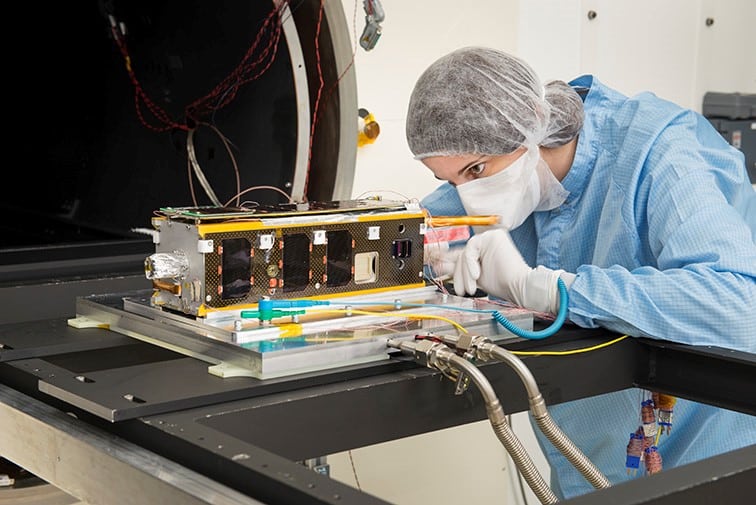Latest News

Engineers at STFC RAL Space have heritage in novel space technology and small satellite development and testing. Photo: STFC RAL Space
Early demonstration of new quantum space technologies, through the latest collaboration between the U.K. and Singapore governments, could lead to more secure online activity for consumers in everything from financial transactions to online conversations. The aim of the $11.6 million (10 million euros) initiative between the U.K. and Singapore governments is to build and fly a satellite Quantum Key Distribution (QKD) test bed. Through this collaboration, Singapore and the U.K. will co-develop the QKD cubesat, a satellite based on the cubesat standard, that will use a pioneering QKD technology to test the secure distribution of cryptographic keys over globe-spanning distances.
Satellite-based QKD is emerging as a communication technology, that may be more secure than existing encryption techniques. This new joint quantum technology satellite mission opens access to a global market thought to be worth up to $15 billion (11.5 billion euros) over the next ten years. The collaboration aims to build on both countries’ efforts to grow the space and quantum technologies sectors by staking a claim in the emerging QKD market. The satellite will be operational in late 2021.
In the UK, work will be led by the Science and Technology Facilities Council’s (STFC) RAL Space, which will contribute its expertise in innovative space technology and optical links needed for beaming QKD signals. In Singapore, work will be led by the Center for Quantum Technologies (CQT) at the National University of Singapore (NUS), which will contribute its expertise in the building of rugged and compact QKD instruments.
Get the latest Via Satellite news!
Subscribe Now